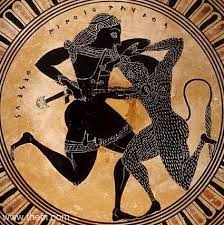Discovering the Timeless Musicality and Depth of the Greek Language: From Ancient Expression to Modern Thought

Time captivates us and the Greeks expressed themselves in a way that gave importance to the impression of actions when they spoke, to how things happened, not the moment but the progression, not time but the aspect.
The “is” really belongs to the thing, the “was” and the “will be” belong to the “passage”.
It is unknown to us how the words must have sounded then ..
We have the alphabet, but we don’t have the certainty of its sound.
And yet, the Greek language had music, the tone was melodic, and the tonic vowel was characterized not by the intensity of the voice, but by how it was pronounced.
This musicality, however, began to diminish so in the 2nd century AD while the rhythm changed the writing did not, we did not understand this shift.
The spirit, “the tone” the punctuation, all made easier for all readers, and we owe a debt of gratitude to the Alexandrians who so laboriously devised them to facilitate our understanding.
From the ending of the word, we understand its place in the text and its ending concentrates on its value.
Thanks to this, the Greek language – ancient and modern – we think when we speak and must concentrate on writing.
The Greek language – ancient and modern – obliges us to think when we speak and when we write think who we are, where we are what we are and its value.


